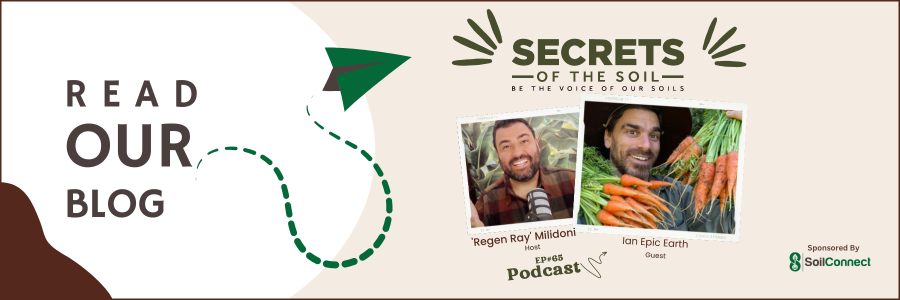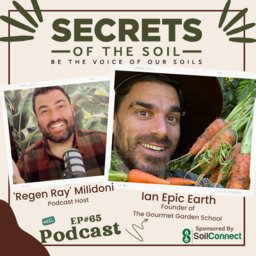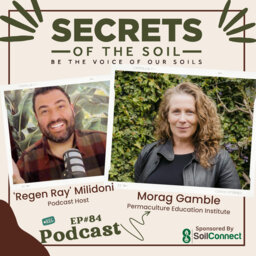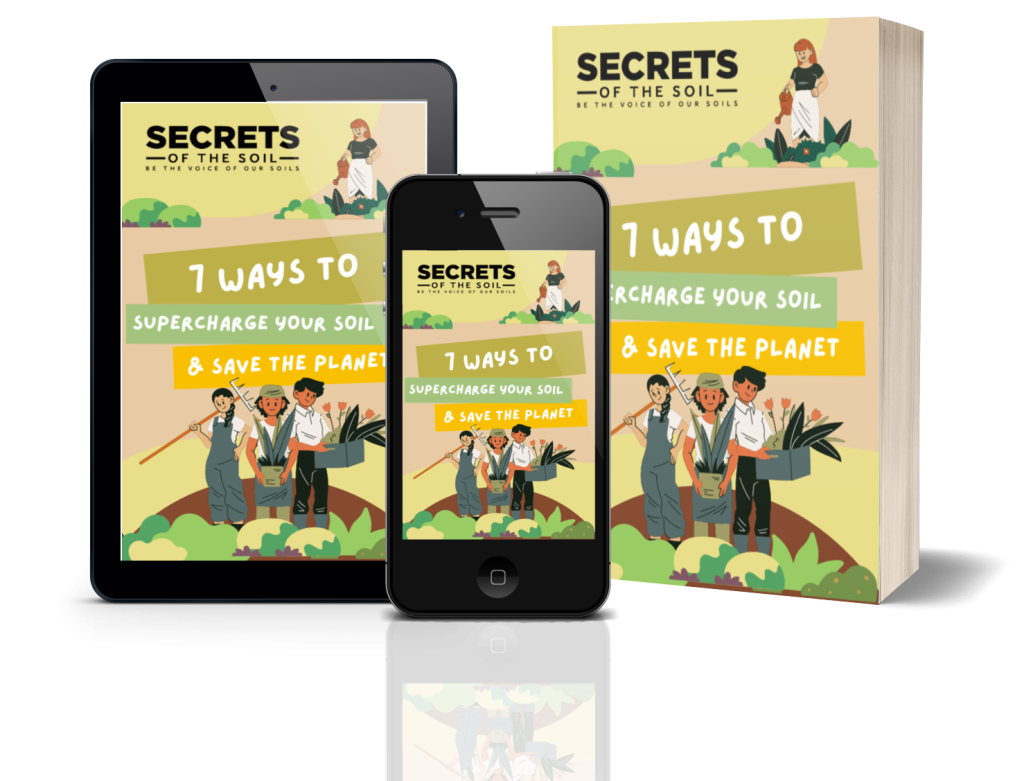In the latest episode of Secrets of the Soil, our guest Ian Epic Earth shares important insights on cultivating optimal conditions for biology to flourish.
Here are three key takeaways:
1️⃣ Spending time in the garden can be incredibly rewarding and nourishing. Ian shares his personal experiences of prioritizing his garden and even building a fireplace to cook meals with his spouse.
2️⃣ With an increase in home growers, Ian and the host discuss the growing trend of people growing their own local food. They mention how it can be fulfilling and empowering, and even offer tips on sourcing local seeds and cultivating resilient plants.
3️⃣ Food grown in a way that benefits the ecosystem and soil health is not only more flavorful but also more nutritious. This can help promote good health rather than managing poor health with supplements.
Don’t miss the full episode for even more valuable insights on soil health and home gardening! #SecretsofSoil #HomeGardening #SoilHealth #FreshFood #Nourishment #Podcast
Who is Ian Epic Earth?
Ian Epic Earth is an Environmental Scientist, soil analyst & passionate home gardener, Ian’s invested over 20yrs perfecting the art of growing high-quality food in the most ecological ways possible.
Disappointed by the decline in commercial food nutrition and flavour, he’s an avid proponent for growing our own truly gourmet food using natural, organic and local inputs. With an intimate understanding of soils, landscape ecology, plant nutrition and through years of research and experience he’s a passionate & engaging educator.
With a natural flair for simplifying complex topics, his personal mission is to improve both broader ecosystem and personal health by sharing the skills for growing better quality food, for less work, with less pests, through his organisation, The Gourmet Garden School.

In recent times, the COVID-19 pandemic has shone a spotlight on the vulnerabilities within our food systems. As supply chains faced disruptions, many became aware of the importance of local food systems and self-sufficiency. On the latest episode of “Secrets of the Soil,” we delve into these themes with guest expert Ian Epic Earth, discussing home gardening’s role in providing nutritious food, fostering community, and contributing to ecological well-being.
Rediscovering Food Sovereignty
With supermarket shelves occasionally empty and global trade interrupted, individuals have turned to their backyards for a sense of food sovereignty. Home gardens offer an avenue to grow fresh, nutrient-dense foods, promising convenience and resilience in uncertain times. Ian explains that such practices ignite a deep connection to the land and a return to human existence’s fundamental elements. In doing so, we reconnect with the joy of eating well, drawing from nature’s bounty directly.
The Role of Nutrient-Dense Foods
In a world where the supplement industry booms due to widespread nutritional gaps, integrating naturally nutrient-rich foods into our diet is more crucial than ever. Ian emphasizes that plants flourishing in well-managed ecosystems can express their full genetic potential, leading to tastier, more aromatic produce with a longer shelf life—all indicators of high nutritional content. He asserts that better quality food not only adds flavor to mealtime but can promote good health and aid in detoxifying the body from environmental pollutants and toxins.
Community Connectivity Through Gardens
Our guest reminisces about growing up in a permaculture-based Italian family, where food production and community exchange were commonplace. Gardens can be a remarkable space for bringing people together, and as Ian describes, sharing harvests can rekindle a sense of community that has often been lost in modern society. These interactions represent more than just transactions; they are primal, nurturing connections that revolve around stories, laughter, and shared joy.
Home Gardening and Ecosystem Health
The importance of soil in plant health and taste cannot be overstated. Ian notes that commercial agricultural practices often neglect flavor and resilience for transport durability and shelf-life. Herein lies the advantage of homegrown and heirloom varieties: they restore diversity and can be adapted for local conditions, thus enhancing the overall garden ecosystem and resulting in produce with superior taste and nutritional value.
Post-Flood Recovery and Soil Management
Reflecting on the disastrous floods in the northern rivers, Ian speaks about managing saturated soils and improving garden resilience against extreme weather events. He offers his expertise through the “Flooded to Fertile” course—an invaluable resource for gardeners facing such challenges. This course underscores the need for proper soil drainage and structure to ensure that gardens can survive and even thrive after severe weather events.
Seed Saving and Adaptation
The discussion expands to the significance of local seed saving in creating resilient plant varieties. Plants maintain a memory of successful growth, which can be harnessed by saving seeds from the strongest specimens. These locally adapted seeds can lead to a population of plants better suited to the garden’s microclimate, increasing yields and producing more flavorful fruits and vegetables.
A Call to Nurture The Earth and Ourselves
Ultimately, “Secrets of the Soil” unveils the profound satisfaction that comes from nurturing a garden. Ian and host Regen Ray advocate for spending more time outside, reconnecting with nature, and implementing best practices in gardening. Ian’s own experience—making his garden a paradise—inspires listeners to consider the transformative power of hands-on food production. As we find ourselves increasingly indoors, tuning into the rhythms of nature could not only improve our health and the health of the planet but also reintroduce much-needed community spirit into our lives. Join us next time as we continue to uncover the myriad wonders waiting right beneath our feet.






